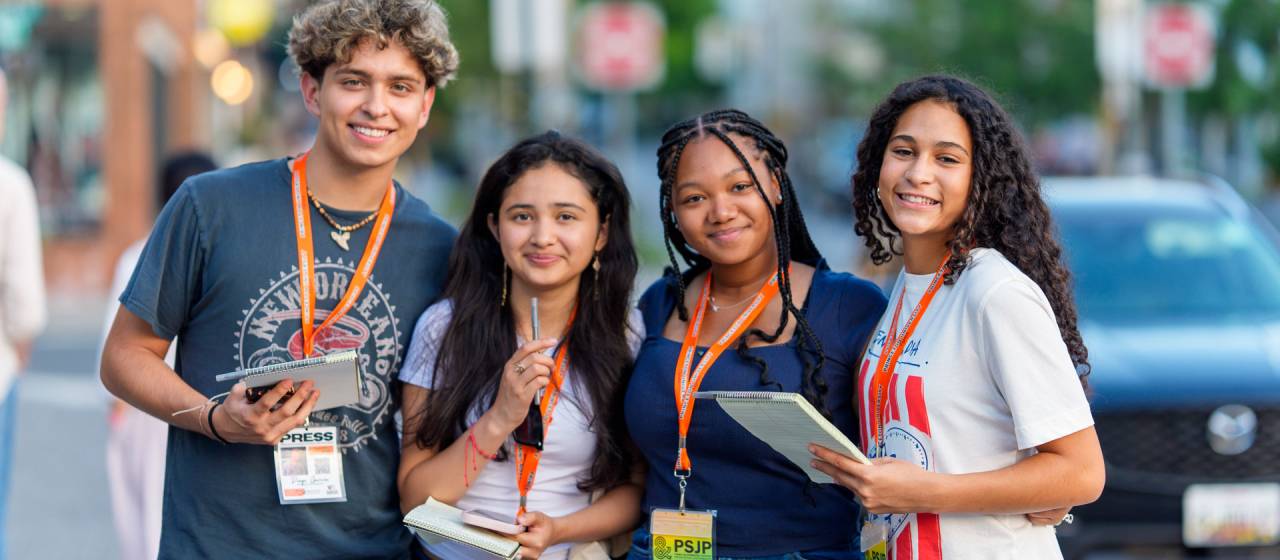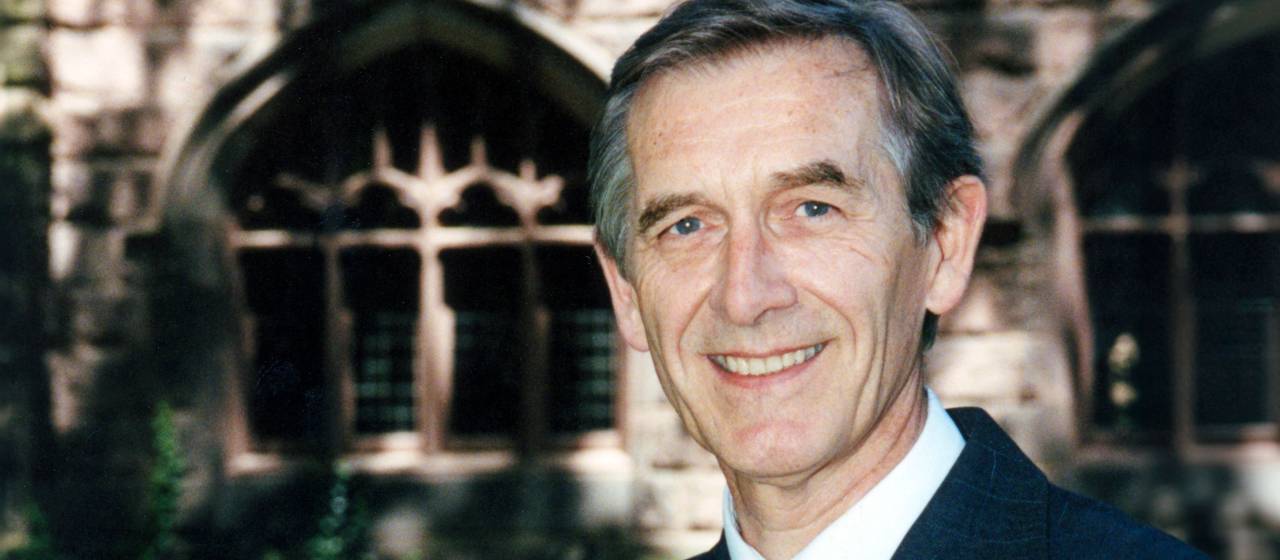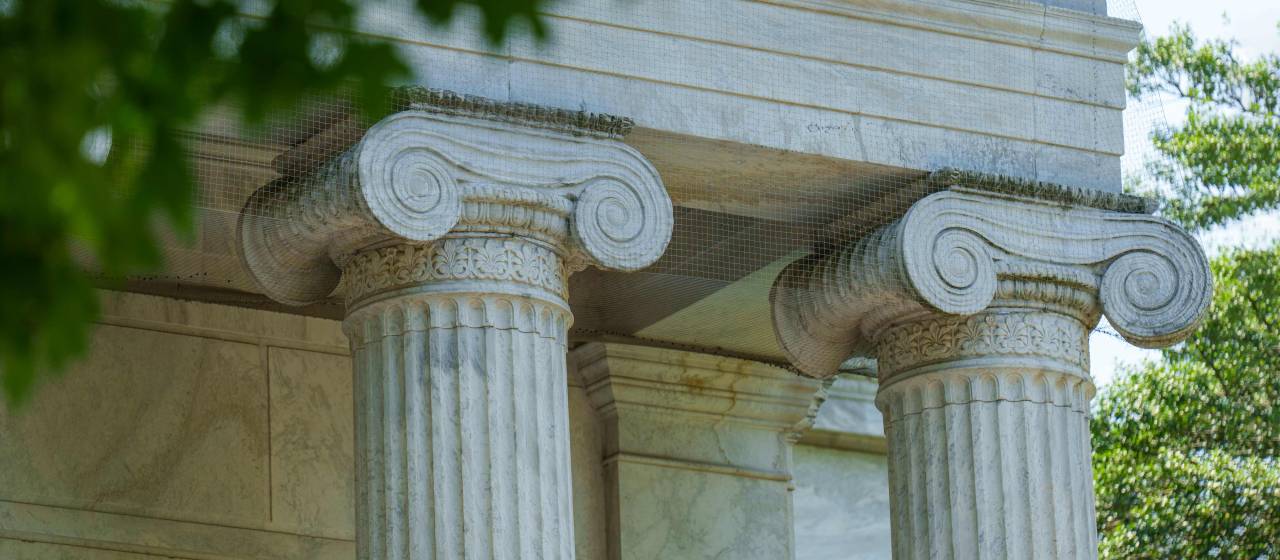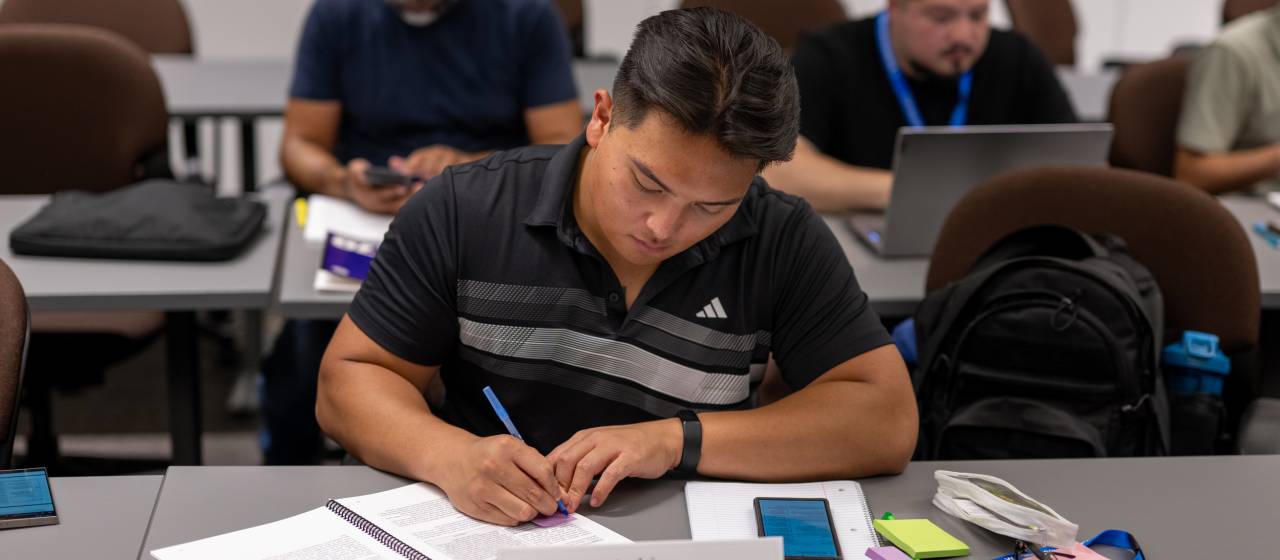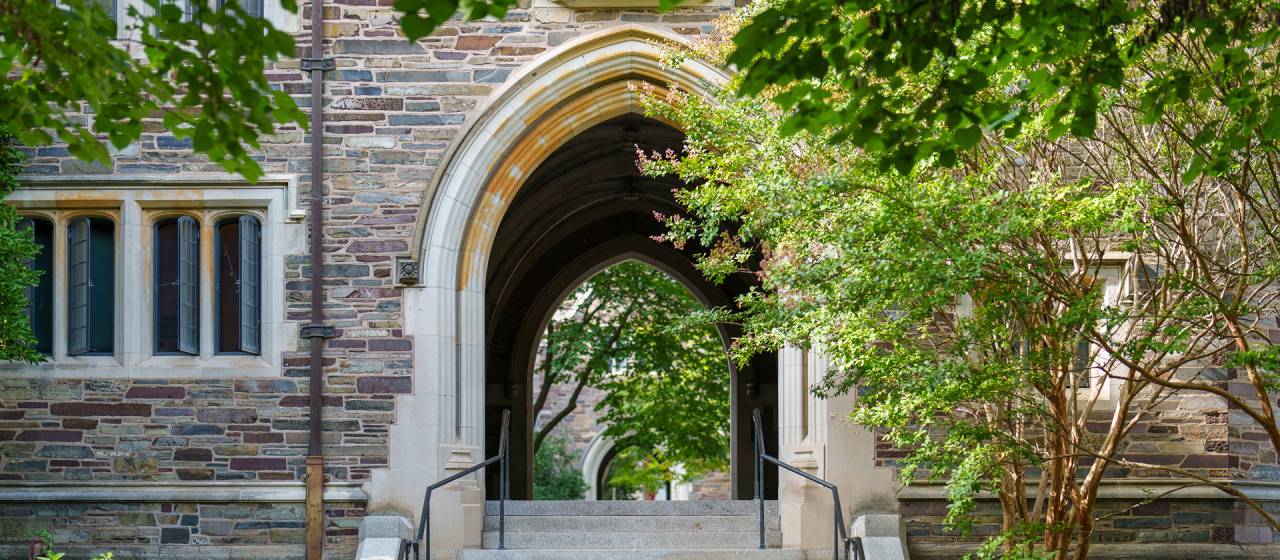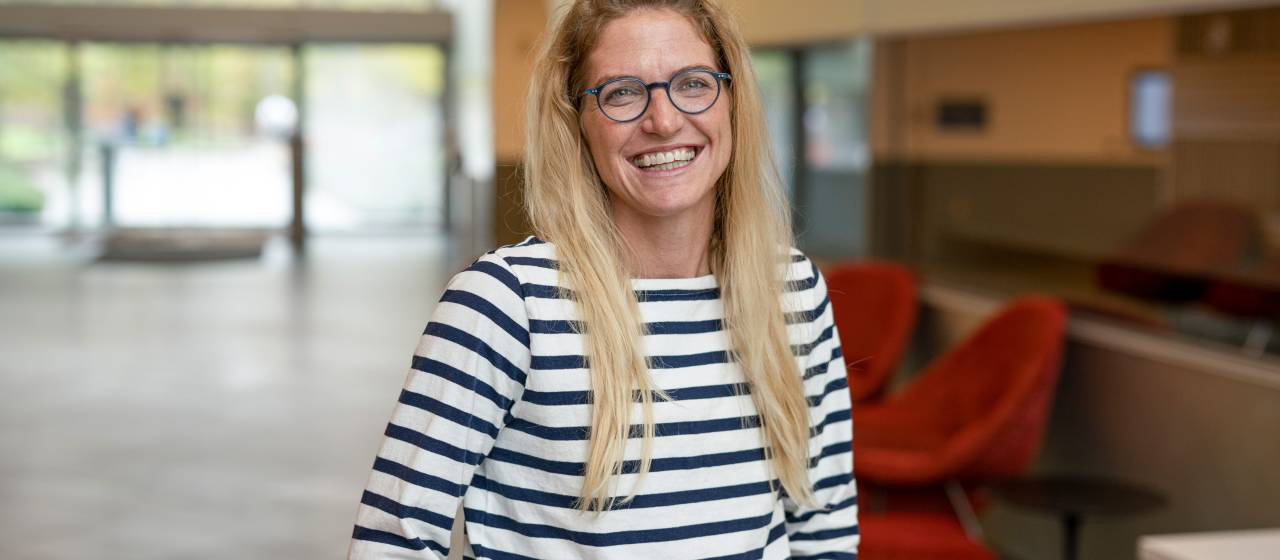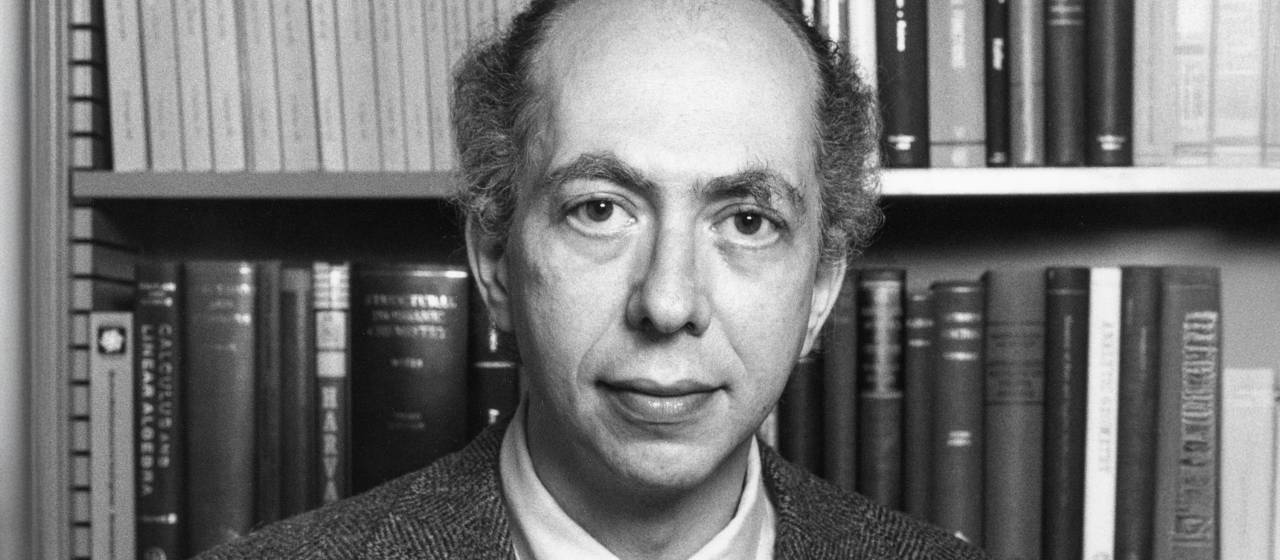How Princeton summer programs help high school, public college, transfer, veteran and other students succeed in school and beyond
Emily Popek, a first-generation college student from Stillwater Township, New Jersey, is starting her first year at Princeton with “more confidence and an open mind” following eight weeks in one of the transformative summer programs led by the Emma Bloomberg Center for Access and Opportunity (EBCAO).
“I had no prior experience with college and this summer really gave me a great idea of what to expect,” said Popek, a Marine Corps veteran who recently completed the Freshman Scholars Institute on campus.
Princeton’s Emma Bloomberg Center helps students from all backgrounds — including those from first-generation college, lower-income, transfer, veteran and military backgrounds — thrive in their academic journeys to, through and beyond college.
Although the center offers year-round programs for high school and college students from Princeton and non-University schools, the summer provides extended time for classes, professional development, research projects and other activities focused on academic enrichment, college preparation, mentorship and community building.
Students credit these experiences with exposing them to new ways of thinking, improving their research, writing and analytical skills, and transforming how they approach their higher education journeys.
“With the mentorship and guidance of our faculty and staff, students gain confidence in their ability to navigate and succeed in new environments,” said Khristina Gonzalez, senior associate dean of the college and the Bob Peck ’88 Director of EBCAO. Their learning continues in different ways during academic year programming.
Below are highlights from the 2025 summer sessions for the following programs: the Aspiring Scholars and Professionals (ASAP), Freshman Scholars Institute (FSI), Princeton Summer Journalism Program (PSJP), and Transfer Scholars Initiative (TSI). EBCAO also hosted the longtime Princeton University Preparatory Program and the new Lydia Scholars program, which will be featured in upcoming stories this fall.
Aspiring Scholars and Professionals program

ASAP students from New Jersey colleges and universities interned with 12 academic and administrative units at Princeton, including the Department of Classics, Campus Support Services, the Carl A. Fields Center, and the Office of Disability Services. Madison Reda of Drew University (at left in photo), and Brandon Joaquin Ramirez of Rutgers University-New Brunswick (center) interned at Princeton’s Gender + Sexuality Resource Center with associate director Alex Rosado-Torres (right).
For five years, the ASAP program has helped prepare students from statewide colleges and universities for successful careers in higher education through internships with Princeton faculty and staff.
This summer, 18 undergraduates spent eight weeks interning with 12 academic and administrative units, including the Department of Classics, Campus Support Services, the Carl A. Fields Center, and the Office of Disability Services.
The students represented New Jersey public and community colleges including Bloomfield College of Montclair State University, Kean University and Middlesex County College, as well as new partner schools like Montclair State University, the Stevens Institute of Technology and Drew University. This year’s cohort also included three college students who had previously participated in EBCAO’s Transfer Scholars Initiative.
Interns may continue collaborating with their Princeton mentors during this academic year – a feature introduced in 2024 to expand ASAP’s impact beyond summer.
“This gives students more of an opportunity to really spend the summer learning and then to really be able to make a contribution to their unit,” said Afia Ofori-Mensa, director of equitable postgraduate academic opportunities at the EBCAO. “It's mutually beneficial to the interns and to the supervising mentors.”
During the summer, ASAP students had the option to commute or live on campus while working in their paid internships. They attended professional development and research workshops, engaged in career discussions and gave a final presentation on how the experience influenced their future goals.
Brandon Joaquin Ramirez, a Class of 2027 student at Rutgers University-New Brunswick, and Madison Reda, a member of Drew University’s Class of 2028, interned at Princeton’s Gender + Sexuality Resource Center under associate director Alex Rosado-Torres.
They traveled to New York, Philadelphia and Chicago to conduct interviews for the Princeton LGBTQIA+ Oral History Project. Both students will continue their positions on a part-time basis this year.
“Being in that supportive community that wants to learn and wants to do research is so empowering,” said Reda, a biochemistry and molecular biology major who came to ASAP for a summer internship outside of STEM. Ramirez said he was inspired to start a similar oral history project at Rutgers.
For Rosado-Torres, the students' work reaffirmed the value and impact of conducting qualitative research at Princeton and facilitating the cross-institutional partnerships he called one of the "north stars" of the ASAP program.
Emily Fox, a Smith College student who completed the University’s Transfer Scholars Initiative in 2023, interned with Jordan Reed, director of transfer and veteran initiatives at EBCAO. Fox graduated from Middlesex College last year and applied to ASAP to work with Reed in Princeton University Library’s Special Collections and trace the legacy of transfer and veteran students at Princeton.
Reed, a historian by training, said one of the great strengths of the ASAP program is giving undergraduates from New Jersey community colleges access to these resources like the library archives.
Fox originally wanted to research the history of coeducation at Princeton, but as she explored the archives, she discovered a book of minutes from a trustee meeting in 1787 describing students as being "from other colleges."
“Essentially, we discovered this summer that some iteration of the transfer experience has existed at Princeton since the 1700s, all the way back to the founding of the institution,” said Reed.
“Transfer students at Princeton — and all other colleges and universities — frequently wonder, ‘Do I belong?’ And now, because of Emily's research … we can say an even more emphatic ‘yes,’” Reed added. “Students who walked comparable paths have existed at the University since the start.”
Fox will continue her internship through the spring, hoping to conduct similar research in the archives of universities like Harvard and Yale.
Freshman Scholars Institute: Online and Residential programs
This summer, 190 incoming Princeton students got early exposure to academic, co-curricular and campus life through FSI, with 78 students in FSI Residential and 112 in FSI Online.
Students earn one or two Princeton credits in humanities and lab-based classes, meet Princeton faculty, connect with peers and learn about the University’s many academic, professional development and well-being resources.
“FSI focuses on how to navigate and thrive in Princeton’s residential liberal arts environment,” Gonzalez said.
“With FSI, I have seen meaning in everything we have learned and how it directly influences who I am and what I believe,” said Class of 2029 student Grace Kyalo of Nairobi, Kenya. Kyalo and other FSI Online students were able to move onto campus early for a transition week of in-person activities.
During weekly colloquia, students also learned about the scholarly journeys of Princeton professors, including Dean of the College Michael D. Gordin, Rebecca Carey, an assistant professor of psychology, and Heather Howard, a professor of the practice in the School of Public and International Affairs.
Carey studies the effects of social class inequality on health, participation in higher education and relationship formation. She shared how her own background as a “first-generation, lower-income student from El Paso, Texas” sparked her research interests.
“I realized that part of my experience navigating higher education was this awareness that my background was different from the backgrounds of a lot of people at my university,” Carey said. “When I got to graduate school, I realized that I could form a research question that brought together my love of psychology, my interest in cultural differences and also my own personal identity.”
Carey, who recently received the President’s Award for Distinguished Teaching, also spoke about how Princeton faculty work directly with undergraduates.
“I am really lucky to have undergraduate students as part of my lab and a lot of the work that happens is because of undergraduate thesis students doing research there,” said Carey, who runs the Adversity and Relationships in Context (ARC) Lab.

Heather Howard (left), a professor of the practice in the School of Public and International Affairs, talked with FSI students, including Samuel Posada (right), during a dinner discussion in Yeh College. The FSI experience also included weekly laboratory-based classes (middle) where FSI and TSI students conducted hands-on experiments.
Whether in person or online, all FSI students take “Ways of Knowing." The course introduces them to Princeton’s small, discussion-based seminars that emphasize critical thinking, rigorous analysis and academic writing.
“There's a noticeable transition from high school in the work that we're expected to do in college. We are expected to not just read texts and understand them, but contribute to the scholarly conversation,” said Class of 2029 student Moon Liu of Dallas.
In one “Ways of Knowing” section, Princeton Writing Program lecturer Philip Keel Geheber led students in a close read of the earliest handwritten manuscript of “The Bluest Eye” from Princeton University Library’s Toni Morrison Papers. Examining a lined page draft displayed on screen, students noticed how the Nobel Prize-winning author crossed out passages and revised them in margins with attention to content and structure down to the tiniest details.
“Morrison puts so much weight on her word choices. She changes ‘the’ pizza parlor to ‘a’ pizza parlor,” observed Zachary Macalintal, Class of 2029.
Geheber later handed students highlighters to go back through their own class essays with Morrison’s example in mind. “I’m not saying to throw out your entire draft but this is the degree of revision that is going to get you to the good stuff,” he said.
As a final project, students analyzed their own educational journeys through the lens of the theorists they had studied, from Plato to Foucault. Following their presentations, many of the FSI Residential students invited faculty mentors to lunch to continue discussing their projects.
“It was wonderful evidence of the ownership of their academic journey and the confidence that students had gained this summer,” Gonzalez said.
As the first day of classes approaches on Sept. 2, FSI students said they feel better prepared to meet the inevitable — and exciting — challenges of the Princeton curriculum.
“My parents always remind me the reason you're there is to study, to learn and to be challenged, so I am embracing that,” said Paola Sanchez, a Class of 2029 student from Southern California.
Princeton Summer Journalism Program

Princeton Summer Journalism Program (PSJP) students SeMya Henderson, center right, and Leslie Sifontes, far right, interviewed people in downtown Princeton during a reporting assignment their first day on campus. Many students later wrote about local businesses, issues and events for the Princeton Summer Journal.
As part of PSJP, 38 high school juniors from across the country came to campus to expand their journalistic curiosity and college preparation skills with access to professional mentors and University resources.
In its 24th year, students from more than 20 states — the widest range in recent years — learned about writing, reporting and current events in lectures and workshops led by Princeton professors and professional journalists from The Washington Post, Scientific American and elsewhere.
Students are also assigned to PSJP mentors, many of whom are program alumni and professional journalists, to work with during the summer and following school year as they navigate college applications and admissions.
According to Tieisha Tift, who co-leads PSJP as the assistant director for college preparation initiatives at the Emma Bloomberg Center, participants in last year’s program have been accepted to a range of institutions nationwide, including New York University, Princeton, Stanford University, UC-Berkeley and several historically Black colleges and universities (HBCUs).
PSJP began with three weeks of online learning, followed by July's 10-day boot camp on campus. In both sections, students learned from guest speakers and reported assignments connected to current events. The group also toured the New York City offices of The New York Times and Bloomberg News, and visited Newark to learn about local journalism at NJ Spotlight News.
In a workshop on their first day on campus, Megan Greenwell, PSJP’s deputy director, briefed students on the basics of shoe-leather reporting with fellow counselor Charley Locke, a contributor at The New York Times Magazine. Students then walked through downtown Princeton in teams of two to interview people about this year's assignment topic: “Is the U.S. a meritocracy? Can it ever be?”
Greenwell said the exercise helps students become more confident, effective communicators.
Jiondae Dewald, of Lambertville, New Jersey, said that while she hopes to attend medical school, she values the communication skills she gained at PSJP. SeMya Henderson of Durant, Mississippi, said the program encouraged her to step outside of her comfort zone. Diego Garcia of Lodi, California, said he found the entire PSJP experience to be “exhilarating and also really inspiring.”
At the conclusion of the summer boot camp, students published their writing in the Princeton Summer Journal. Because of their access to the town of Princeton their first day, many students were inspired to write about local businesses, issues and events.
“You see them directly applying the lessons and being super thoughtful about that,” Greenwell said. “That's the thing that is most exciting to me — seeing them put it all together.”
Transfer Scholars Initiative
Now in its third year, TSI has impacted the educational journeys of nearly 200 New Jersey community college students. In 2025, TSI welcomed 64 students from 11 community colleges, including new partner schools Atlantic Cape Community College, Essex County College and Ocean County College.
The intensive summer session included earning two Princeton course credits through writing seminars and STEM labs, transfer success counseling and college admission visits.
“TSI expanded my horizons and influenced me to really research schools that fit my academic interests and needs,” said Katherine Mejia Reyes, a 2023 TSI participant studying sociology and international relations at Drew University after graduating from Union College of Union County, New Jersey.
Joseph Frazier, a TSI course fellow this summer and 2024 participant, shared a similar experience.
“I might not have known about Williams College, or what a liberal arts college even was, if not for TSI,” said Frazier, who is starting Williams this fall after graduating from Mercer County Community College. “I didn’t know that a lot of liberal arts colleges have generous financial aid packages. That knowledge is something I also gained from TSI that really helped my decision to apply.”
Students will continue to receive support from TSI staff and mentors as they apply to selective public and private four-year institutions. They will also return to Princeton’s campus this fall for two Transfer Application Bootcamps — a culmination of everything they’ve learned about the college admission process.
“The experiences section of the application is your opportunity to explain your full story and provide your full context,” said EBCAO's Jordan Reed during a Common Application workshop. “Some of you are parents, some of you are caretakers, some of you provide medical or financial assistance to your families. Those are really important experiences that tell admission readers who you are and how your experiences shaped you.”
“Be your authentic self on the application,” added Queenie Reda, who helps lead TSI as an EBCAO outreach program associate.
TSI participants also learned from panel discussions with Princeton transfer students, many of whom came to the University after attending community college and/or serving in the military.
“My academic advisers have been a big influence – they encouraged me to follow my passion,” said Franklin Castro, a Class of 2027 politics major and TSI residential adviser. “Every day feels like the first day of a honeymoon because I enjoy what I’m learning and because of all the resources here.”
Haley Champion, a Class of 2027 history major pursuing a visual arts minor, said she likes to take a wide range of classes — from German to neuroscience — that both complement her major and provide “alternate perspectives.” Champion said she appreciates that “schools like Princeton encourage you to broaden your horizons.”
“Whether it’s Princeton or other top tier schools, find those resources and people that will help you succeed. Seek those things out early and don’t be shy about asking questions,” advised Thomas Emens, Class of 2025, former president of the Princeton Transfer Association and TSI resident graduate student. “Success is possible wherever you go.”

Transfer Scholars Initiative students and staff take a group photo at the conclusion of this summer's session on campus. The 2025 students represented 11 community colleges in New Jersey.






